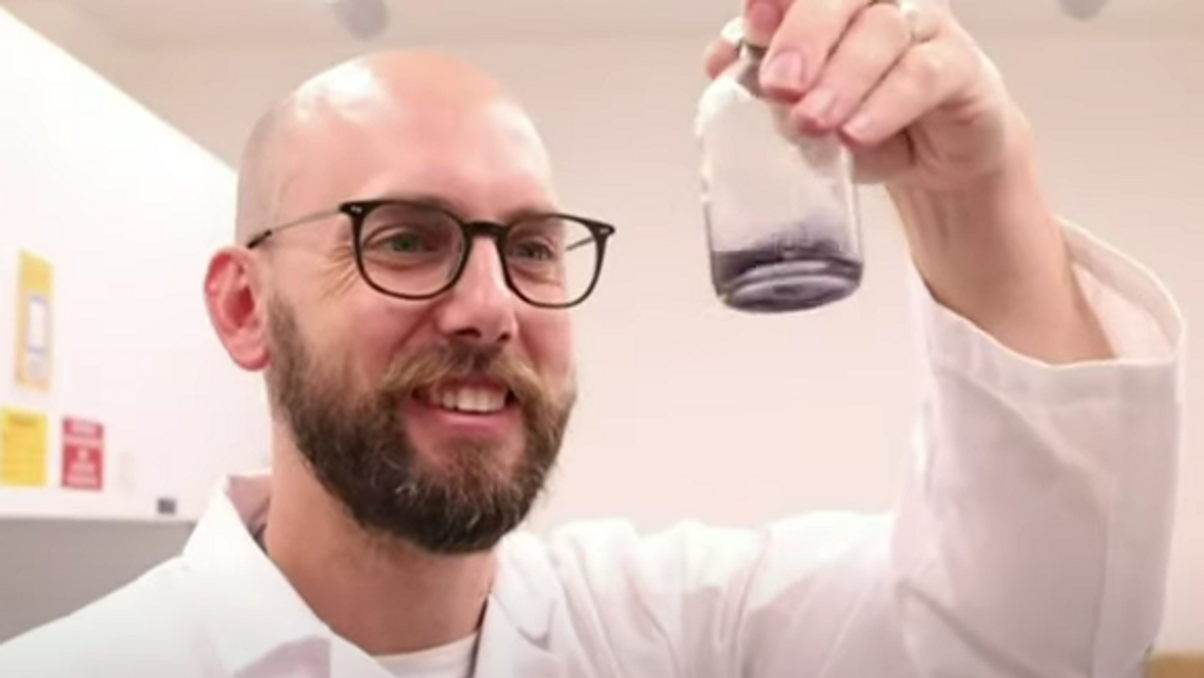Could This ‘Natural Battery’ Be The Answer To Humanity’s Energy Crisis?
The research is still in its infancy, but it's an intriguing concept. YouTube: 10 News First
YouTube: 10 News First
News that is entertaining to read
Subscribe for free to get more stories like this directly to your inboxDespite the impact on the environment and the fact that such resources are rapidly being depleted, most of the world relies on fossil fuels to generate the electricity that makes our modern society operate.
There are other options on the table, such as wind and solar energy, but they don’t yet come close to meeting the demand.
A new study recently posted in the “Nature” journal, however, suggests that there might be an intriguing new solution.
It’s in the soil
According to researchers at Monash University, a specific enzyme found in soil bacteria seems to act like a “natural bacteria” by converting hydrogen in the air directly into electricity.
The enzyme in question — called Huc — is apparently pretty common and, if the process is as efficient as early evidence suggests, could provide a truly renewable energy resource.
Rhys Grinter, one of the study’s lead researchers, explained: “We’ve shown that when we isolate [Huc] in the lab, we can put that into an electrical circuit and it produces electricity.”
Don’t get too excited
Huc isn’t going to replace coal-fired power plants anytime soon.
For starters, the recent study reflects just the tip of the research iceberg and experts will need to devote a lot more time and resources before this clever enzyme is powering consumer devices.
Additionally, even if the process is perfected, there’s not nearly enough hydrogen in our atmosphere to produce enough power for anything other than small electronics. Even Grinter acknowledged that you’d need an external hydrogen source to keep anything larger going.
Hydrogen power expert Robert Willows was even more cautious, calling the concept of getting electricity from the air “a big reach.”
It might be useful in narrow applications, though — like a smart monitor that helps you keep track of how fresh your food is.
 Why Is The Aging Voyager 1 Probe Sending Back Incoherent Communications?
It's been speaking gibberish for a few months and officials are concerned.
Why Is The Aging Voyager 1 Probe Sending Back Incoherent Communications?
It's been speaking gibberish for a few months and officials are concerned. One Woman’s Massive Donation Is Wiping Out Tuition At This Medical School
Her inheritance came with the instruction to do "whatever you think is right."
One Woman’s Massive Donation Is Wiping Out Tuition At This Medical School
Her inheritance came with the instruction to do "whatever you think is right." Woman’s Pets Will Inherit Her Multimillion-Dollar Fortune, Not Her Kids
It's not the first time four-legged heirs were named in a will.
Woman’s Pets Will Inherit Her Multimillion-Dollar Fortune, Not Her Kids
It's not the first time four-legged heirs were named in a will.